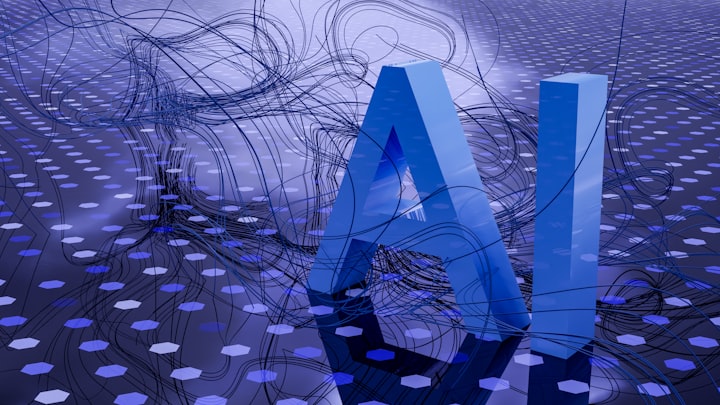The Evolution of Work: How Artificial Intelligence is Changing the Workforce
Navigating the AI Revolution: Transformations, Challenges, and Opportunities in the Workforce

Title: The Evolution of Work: How Artificial Intelligence is Changing the Workforce
Introduction
Artificial Intelligence (AI) has emerged as a transformative force, reshaping industries, economies, and the very nature of work itself. From automation to augmentation, AI is changing the workforce in profound ways. In this article, we will delve into the myriad ways AI is impacting our jobs, industries, and the skills required for success in the modern job market.
Automation and Job Disruption
One of the most significant ways AI is changing the workforce is through automation. Machines and algorithms are increasingly capable of performing tasks that were once exclusive to humans. This includes routine manual tasks in manufacturing, data entry, and customer service. While this can lead to increased efficiency and cost savings for businesses, it also raises concerns about job displacement.
Automation is particularly evident in industries like manufacturing and logistics, where robots and AI-driven systems are taking over repetitive tasks. For example, Amazon's fulfillment centers use robots to transport goods, reducing the need for manual labor.
However, it's important to note that automation doesn't necessarily mean a loss of jobs across the board. Many experts argue that AI will also create new jobs, often of a more complex and technical nature.
AI Augmentation and Enhanced Productivity
Rather than simply replacing human workers, AI is increasingly being used to augment human capabilities and enhance productivity. This is particularly evident in knowledge-based industries such as healthcare and finance.
In healthcare, AI-powered diagnostic tools can analyze medical images, detect anomalies, and assist doctors in making more accurate diagnoses. In finance, AI algorithms can analyze vast amounts of data to identify trends and make investment recommendations.
This augmentation of human capabilities allows professionals to focus on higher-level tasks, leading to increased efficiency and better decision-making.
Skill Shift: Adaptation is Key
As AI becomes more integrated into the workforce, the skills required for success are shifting. Technical skills related to AI, machine learning, data analysis, and programming are in high demand. Additionally, soft skills such as critical thinking, creativity, emotional intelligence, and adaptability are becoming increasingly valuable.
The ability to work alongside AI and effectively leverage its capabilities is a key skill for the future. Workers who can understand and harness the power of AI will have a competitive advantage in the job market.
The Gig Economy and AI Platforms
AI is also changing the nature of work arrangements. The gig economy, characterized by short-term contracts and freelance work, has been amplified by AI-powered platforms. Companies like Uber, Airbnb, and Upwork rely on AI algorithms to match workers with jobs and tasks.
These platforms provide flexibility for workers but also raise questions about job security and benefits. As AI continues to shape the gig economy, policymakers and businesses are grappling with the need for new labor laws and social safety nets.
AI in Human Resources
AI is transforming the HR industry, from recruitment to talent management. Automated systems can scan resumes, conduct initial interviews, and even predict employee turnover. Chatbots are used for answering employee queries, and AI-driven analytics help HR professionals make data-driven decisions.
While these technologies streamline HR processes, they also raise ethical concerns related to bias and privacy. Ensuring that AI tools are fair and transparent is an ongoing challenge.
Reskilling and Lifelong Learning
As AI reshapes the workforce, continuous learning and upskilling are becoming imperative. Workers must be prepared to adapt to new technologies and acquire new skills throughout their careers.
Employers are increasingly investing in reskilling programs to help their employees stay relevant in a rapidly changing job landscape. Likewise, individuals are seeking online courses and certifications to acquire the skills needed for AI-related roles.
AI and Creativity
Contrary to the fear that AI will replace human creativity, it is also being harnessed to enhance creative endeavors. In the arts, AI can generate music, create visual art, and even write poetry. Content creators use AI tools to assist with ideation, research, and editing.
The collaboration between humans and AI in creative fields has the potential to unlock new forms of artistic expression and innovation.
Ethical and Social Implications
AI's impact on the workforce is not just a matter of economics and efficiency; it also carries ethical and social implications. Questions about the responsible use of AI, privacy, and the potential for bias in AI algorithms are hot topics of debate.
Ensuring that AI technologies are developed and deployed ethically is crucial to creating a future workforce that is fair, inclusive, and accountable.
Conclusion
Artificial Intelligence is undeniably changing the workforce in profound ways, from automation and augmentation to shifts in required skills and the nature of work arrangements. While it brings opportunities for increased efficiency and productivity, it also raises important challenges related to job displacement, ethics, and the need for ongoing learning and adaptation.
As AI continues to evolve, it is crucial for individuals, businesses, and policymakers to work together to harness its potential for the benefit of society while addressing its potential pitfalls. The future of work will be shaped by our ability to navigate this transformative era of AI with wisdom and foresight.





Comments
There are no comments for this story
Be the first to respond and start the conversation.